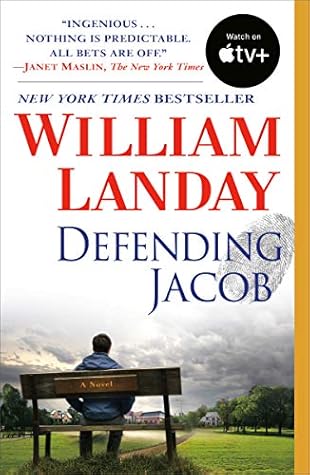More on this book
Community
Kindle Notes & Highlights
not
Parents of murdered children have it worst, and to me the fathers have it even worse than the mothers because they are taught to be stoic, to “act like a man.” Studies have shown that fathers of murdered children often die within a few years of the murder, often of heart failure. Really, they die of grief.
“Laurie, if you keep the school closed, you send these kids the wrong message. School isn’t supposed to be dangerous. It’s not a place they should be afraid of. It’s their second home. It’s where they spend most of their waking hours. They want to be there. They want to be with their friends, not stuck at home, hiding under the bed so the bogeyman doesn’t get them.”
I’d argue that closing schools until murderers are arrested is a good idea. It’s a nice thought—that kids should feel safe in schools—but empirically, we know they aren’t. Ever since Columbine everyone knows that.
At some point as adults we cease to be our parents’ children and we become our children’s parents instead.
Here is the dirty little secret: the error rate in criminal verdicts is much higher than anyone imagines. Not just false negatives, the guilty criminals who get off scot-free—those “errors” we recognize and accept. They are the predictable result of stacking the deck in defendants’ favor as we do. The real surprise is the frequency of false positives, the innocent men found guilty. That error rate we do not acknowledge—do not even think about—because it calls so much into question. The fact is, what we call proof is as fallible as the witnesses who produce it, human beings all. Memories fail,
...more
“That murder might be any business of the state is a relatively modern idea. For most of human history, homicide has been a purely private affair. In traditional societies, a killing was simply the occasion for a dispute between two clans. The killer’s family or tribe was expected to resolve the dispute equitably by some sort of offering to the victim’s family or tribe. The restitution varied from society to society. It might involve anything from a fine to the death of the murderer (or a stand-in). If the victim’s kin was unsatisfied, a blood feud might ensue. This pattern endured across many
...more
A liberal, it turns out, is a conservative who’s been indicted.
As the meeting began, he slumped in his chair with the cavernous hood over his head like a druid.
I rap. My biggest accomplishment so far is doing someone else’s rap—Eminem’s written—“Rap God” in one take. (Rap God is in Guinness’s for most words spoken in the shortest time.) I wear hoodies up a lot. I also am intrigued by Druids…so…LOL.
It is a childish realization, I admit—no one worth knowing can be quite known, no one worth possessing can be quite possessed—but after all, we were children.
I think of it this way: if Yo-Yo Ma had a son, the kid wouldn’t be born knowing how to play the cello. He’d have to learn to play the cello just like everyone else. The most you can inherit is talent, potential. What you do with it, what you become, all that is up to you.”
We humans are swayed more by stories than by abstract concepts like “burden of proof” or “presumed innocent.” We are pattern-seeking, storytelling animals, and have been since we began drawing on cave walls.
The baby did not become the boy; the baby was the boy, the same creature, unchanged at the core. This was the very baby I had held in my arms.
This is an aspect of crime stories I never fully appreciated until I became one: it is so ruinously expensive to mount a defense that, innocent or guilty, the accusation is itself a devastating punishment. Every defendant pays a price.
The leopard in the zoo wanders to the edge of his pen and, through the bars or across an unjumpable moat, he stares at you with contempt for your inferiority, for needing that barrier between you. There is a shared understanding in that moment, nonverbal but no less real: the leopard is predator and you are prey, and it is only the barrier that permits us humans to feel superior and secure.
“I have in mind an experiment. Take an infant—regardless of ancestry, race, talent, or predilection, so long as he is essentially healthy—and I will make of him whatever you like. I will produce an artist, soldier, doctor, lawyer, priest; or I will raise him to be a thief. You may decide. The infant is equally capable of all these things. All that is required is training, time, and a properly controlled environment.” —JOHN F. WATKINS, Principles of Behaviorism (1913)
The money man tells himself that by getting rich he is actually enriching others, the artist tells himself that his creations are things of deathless beauty, the soldier tells himself he is on the side of the angels.
I have an idea that this is what enduring love really means. Your memories of a girl at seventeen become as real and vivid as the middle-aged woman sitting in front of you. It is a happy sort of double vision, this seeing and remembering. To be seen this way is to be known.
Damage hardens us all. It will harden you too, when it finds you—and it will find you.
don’t look back. As Satchel Paige said, “Something may be gaining on you.”


